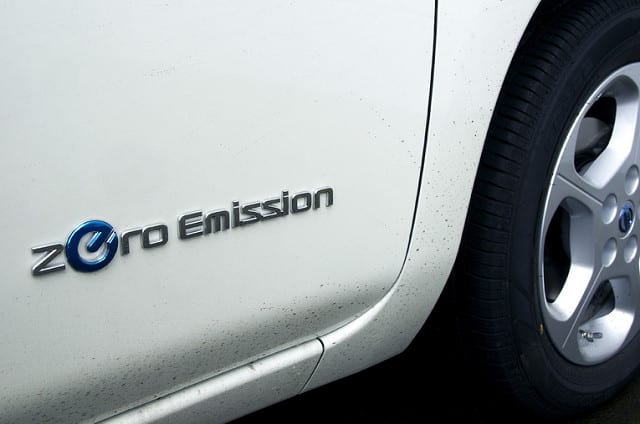Originally published by the Daily Sentinal
Western Colorado prides itself on clean air for much of the year, a diverse economy, and unmatched quality of life. There’s an opportunity to help ensure this continues with Colorado Clean Cars standards.
While we cherish our air quality, it isn’t devoid of problems. Impacted by factors like forest fires and vehicle emissions, there is room for improvement. The new Clean Car standards aim to help. And, contrary to popular belief, these standards aren’t just for urban cities. Their benefits extend to rural areas like Grand Junction.
A recent ERM study suggests adopting the Colorado Clean Cars standards through 2035 could yield benefits nearing $95 billion by 2050. This includes public health improvements, savings for zero-emission vehicle drivers, and savings for all utility customers. Sadly, the state’s current plan stops in 2032, potentially forfeiting $20 billion in benefits. The state should push ahead to 2035.
Why? First, these standards drastically cut tailpipe pollution and reduce greenhouse gases responsible for catastrophes like Colorado’s wildfires and extreme weather, and health issues like asthma. With major highways traversing Grand Junction, we’re particularly vulnerable.
Second, they expand our clean vehicle choices. By 2035, every new vehicle sold could be zero-emission. This doesn’t touch used car sales or off-road equipment. Furthermore, electric vehicles (EVs) offer notable savings. Rural EV owners could save up to $14,350 over the vehicle’s lifespan. Financial incentives abound: Colorado offers up to $7,500 in state tax credits for new EVs, and there are special incentives for low-income residents and Xcel Energy customers. Programs like Vehicle Exchange Colorado further sweeten the deal. The federal Inflation Reduction Act also extends discounts up to $7,500 for new EVs and $4,000 for used EVs.
Where will we charge up, given our long distances? The state is expanding the EV charging network. Grand Junction boasts 77 public charging stations, with more cropping up statewide, including a fast-charging network. Charging your vehicle at home overnight is easy and economical.
Building out the charging infrastructure is also creating jobs. The Bipartisan Infrastructure law will channel an estimated $57 million to Colorado for expanding the network.
Colorado plans to take advantage of those charging station investments. It also should adopt the strongest Clean Car standards. It will be an invaluable investment in a cleaner, healthier, and prosperous future for folks in Grand Junction, and across our magnificent state.
Time to push the pedal to the floor, Colorado.
Louis Villaire is co-owner of Atlasta Solar Center in Grand Junction. He is also an energy analyst and lectures part time at Colorado Mesa University. Darin Carei is founder of Synergy Builders in Grand Junction.
